Operation wetie, in the context of the crises, means to douse or wet politicians, their properties and supporters with petrol and set them ablaze. The background of the riots is traced to the 1962 Action Group crises which was a result of the struggle for power between two political leaders of the Western Region and Action Group (AG), Chief Obafemi Awolowo and Chief Samuel Akintola.
The bloody riots started with an intra-party disagreements between the leader of the Action Group, Chief Obafemi Awolowo, and his deputy, Chief Samuel Ladoke Akintola.
It all began when Chief Obafemi Awolowo gave up his post as the Premier of Western Region to seek power as the Prime Minister but lost and settled as the leader of opposition in the federal parliament. Though the premiership mantle was handed over to Akintola but Awolowo still retained his post as the leader of the Action Group. However, Samuel Akintola did not reckon with Awolowo’s decision to remain the leader of the party and this brought about division of interest and loyalty in the Action Group. A faction of the Action Group pledged loyalty to Awolowo while another supported Samuel Akintola.
The first open head clash between Obafemi Awolowo and Samuel Akintola was in 1961 when the latter went on an economic mission to Europe. The quarrel occurred when Chief Akintola rejected the men Chief Awolowo nominated for the mission and substituted them with the men of his choice. Obafemi Awolowo tagged the incident disrespecting but allowed it to pass by without drawing members of the party into a fight.
After the mission nominees scuffle, the two leaders got into another disagreement when Samuel Akintola dismissed the old board members in Western Nigeria’s public corporations like the printing corporations, the housing corporation, the radio and tv corporation, and replaced them with his own nominees.
As the premier and leader of the Action Group’s parliamentary, Samuel Akintola felt he has the right to do what he did. Another factor that caused the 1962 Action Group crises was the difference in ideology. A faction of the Action Group suggested that the party should drop its ideology of democratic socialism which called for the introduction of mixed economic policies while another faction insisted it should be retained.
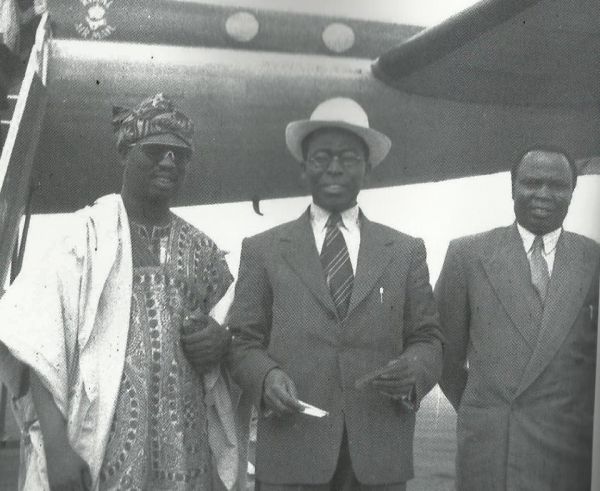
Later in May 1962, the Western House of Assembly attempted to remove Chief Samuel Akintola as the Premier of the Western Region after the party had passed a vote of no confidence on him. This attempt led to an open brawl on the floor of the house. However, the then Governor of the Western Region, Sir Adesoji Aderemi who was also the Ooni of Ife relieved Chief Akintola of his post as the Premier of Western Region and installed Alhaji Dauda Adegbenro as the new Premier.
This caused serious uproar and unrest in the Western Region which later resulted to chains of violence. Several people were killed and properties worth millions were destroyed in days. Shortly after, a state of emergency was declared throughout the Western Region and Adesoji Aderemi was sacked as the Governor while Dr. Moses Majekodunmi (the Federal Minister of Health) replaced him as Administrator (interim premier of the Western region) on the 29th of May, 1962.
This became the first time in the history of Nigeria that a state of emergency would be employed to curb violence. Political opponents and their families were set ablaze, and their properties too, some of which were looted. Hundreds of vehicles and houses were razed in the riots tagged operation wetie which left many people dead and incarcerated. The whole of the Western Region was indeed thrown into a state of anarchy.
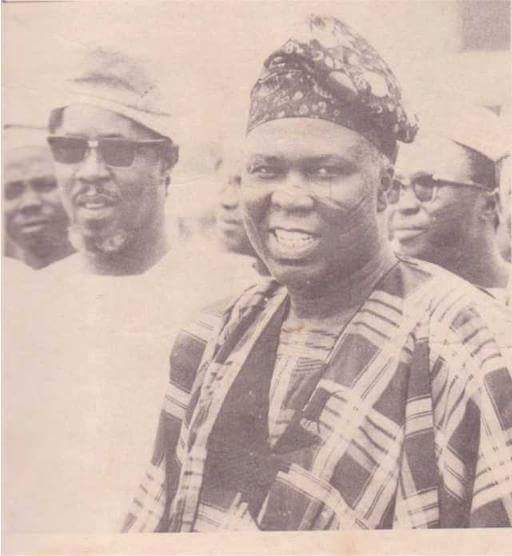
However, on the 31st of December, 1962, Chief Samuel Akintola returned to power as the Premier of Western Region after an alliance between himself and Ahmadu Bello who was the Premier of Northern Region. It was alleged that their alliance earned Chief Obafemi Awolowo a ten-year prison sentence on the count of treason.
Chief Samuel Akintola, together with his Deputy Premier, Remi Fani Kayode (Fani-Power) went further to form a political alliance with the Northern People’s Congress (NPC), the Midwest Democratic Front, the Dynamic Party, the Niger Delta Congress, the Lagos State United Front and the Republican Party and thus formed a new political party named the Nigerian National Alliance (NNA) while NCNC of Dr. Nnamdi Azikiwe allied with Obafemi Awolowo’s Action Group (AG), the Kano People’s Party (KPP), the Northern Progressive Front (NPF) the Zamfara Commoners Party (ZCP), the Northern Elements Progressive Union (NEPU) and the United Middle Belt Congress (UMBC) and all together formed the United Progressive Grand Alliance (UPGA).
And when the parliamentary election came in 1964, the Nigerian National Alliance (NNA) won with a total of 198 seats out of 312 seats and out of the 198 seats won by NNA, NPC held 162 while NNDP of Akintola claimed 36 seats. It is worthy of note that the election was massively rigged. When the manipulated results were announced, unprecedented violence sparked off in the Western Region of Nigeria. Several people were killed daily and countless properties were destroyed too. This is one of the major factors that brought in the first coup in Nigeria on January 15 1966.
References:
- Oldnaija
- Diamond L. (1988) Crisis and Conflict in the Western Region, 1962–63. In: Class, Ethnicity and Democracy in Nigeria. Palgrave Macmillan, London [Accessed, January 15 2018]
- 1964-1965 Elections; Globalsecurity.org [Accessed, January 28 2018]
- THE CRISIS THAT TRUNCATED THE FIRST REPUBLIC; Vanguard Community; February 25, 2015; [Accessed, January 18, 2018]
- Elections in Nigeria; African Elections Database [Accessed, January 21 2018]

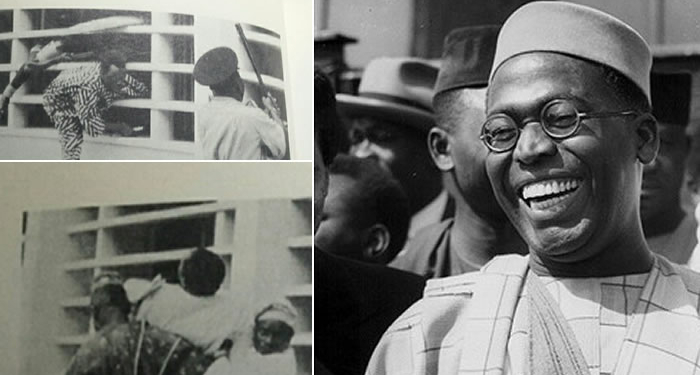
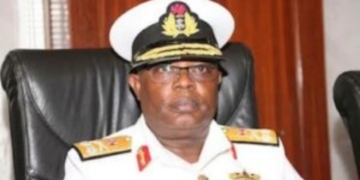
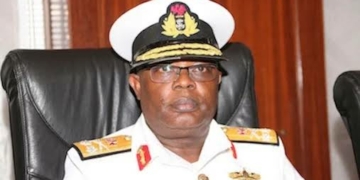
Discussion about this post